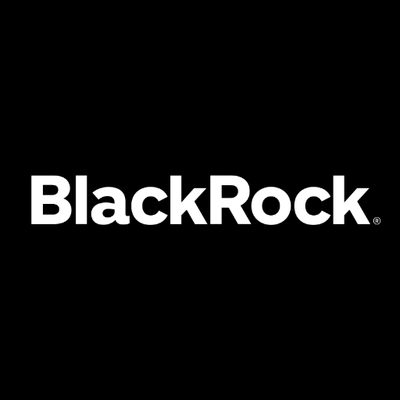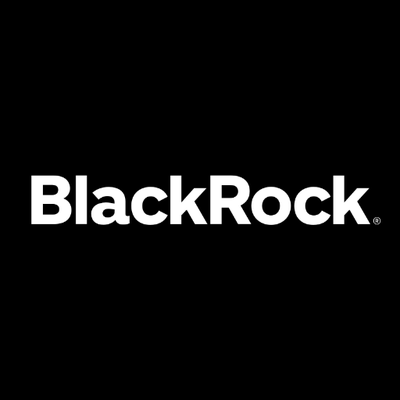All information is at 29 February 2020 and unaudited.
Performance at month end with net income reinvested
| One Month | Three Months | One Year | Three Years | Launch (20 Sep 04) | |
| Net asset value (undiluted) | -5.0% | -5.1% | 14.9% | 36.7% | 417.9% |
| Net asset value* (diluted) | -4.9% | -5.1% | 14.9% | 36.7% | 418.4% |
| Share price | -7.3% | -4.3% | 15.6% | 40.0% | 406.2% |
| FTSE World Europe ex UK | -5.4% | -5.9% | 6.5% | 16.1% | 249.8% |
* Diluted for treasury shares and subscription shares.
Sources: BlackRock and Datastream
At month end
| Net asset value (capital only): | 391.09p |
| Net asset value (including income): | 391.64p |
| Net asset value (capital only)1: | 391.09p |
| Net asset value (including income)1: | 391.64p |
| Share price: | 379.00p |
| Discount to NAV (including income): | 3.2% |
| Discount to NAV (including income)1: | 3.2% |
| Net gearing: | 7.3% |
| Net yield2: | 1.5% |
| Total assets (including income): | £330.2m |
| Ordinary shares in issue3: | 84,323,101 |
| Ongoing charges4: | 1.09% |
1 Diluted for treasury shares.
2 Based on a final dividend of 4.10p per share and an interim dividend of 1.75p for the year ended 31 August 2019.
3 Excluding 26,005,837 shares held in treasury.
4 Calculated as a percentage of average net assets and using expenses, excluding interest costs, after relief for taxation, for the year ended 31 August 2019.
| Sector Analysis | Total Assets (%) | Country Analysis | Total Assets (%) |
| Industrials | 20.2 | Switzerland | 16.8 |
| Health Care | 19.8 | Denmark | 16.7 |
| Technology | 19.2 | France | 13.0 |
| Consumer Goods | 14.9 | Germany | 12.6 |
| Consumer Services | 10.6 | Italy | 7.1 |
| Financials | 8.6 | Netherlands | 7.0 |
| Basic Materials | 3.1 | Sweden | 6.7 |
| Telecommunications | 3.0 | United Kingdom | 5.8 |
| Oil & Gas | 2.1 | Spain | 4.7 |
| Net current liabilities | -1.5 | Israel | 2.4 |
| —– | Finland | 2.2 | |
| 100.0 | Ireland | 2.0 | |
| ===== | Poland | 1.6 | |
| Russia | 1.2 | ||
| Belgium | 1.0 | ||
| Greece | 0.7 | ||
| Net current liabilities | -1.5 | ||
| —– | |||
| 100.0 | |||
| ===== |
| Ten Largest Equity Investments | ||
| Company | Country | % of Total Assets |
| SAP | Germany | 6.1 |
| RELX | United Kingdom | 5.8 |
| Novo Nordisk | Denmark | 5.7 |
| Sika | Switzerland | 5.7 |
| Royal Unibrew | Denmark | 5.2 |
| Safran | France | 5.1 |
| Adidas | Germany | 4.9 |
| Lonza Group | Switzerland | 4.8 |
| Kering | France | 4.8 |
| ASML | Netherlands | 4.5 |
Commenting on the markets, Stefan Gries, representing the Investment Manager noted:
During the month, the Company’s NAV fell by 5.0% and the share price by 7.3%. For reference, the FTSE World Europe ex UK Index returned -5.4% during the period.
February was a challenging period for European ex UK markets and equity markets around the world. Markets fell sharply as fears over the coronavirus and its implications heightened following the first severe cases of the virus in the Western world, particularly in Italy.
It is worth noting that despite the sharp market move there was little in the way of cross-sectional volatility, with defensive assets only marginally outperforming assets where we would expect current trading to be materially affected, such as luxury goods. All sectors saw negative returns during the month with oil & gas and industrials leading the share price fall. Utilities, technology and telecoms held up the strongest.
The Company outperformed the reference index over the month, driven by strong stock selection while sector allocation slightly detracted. On a sector basis, the Company’s lower exposure to financials and higher exposure to technology contributed positively to performance. The lower exposure to oil & gas was also beneficial, as the oil price continued to fall due to the coronavirus impacting oil demand. In particular, avoiding oil majors such as Total was helpful. The one name in the sector we do own, Neste Oil, continued to perform well on last month’s strong results.
The healthcare sector contributed to returns due to strong stock selection. Shares in Swiss biotechnology and speciality chemicals company Lonza continued to be lifted following January’s results. Dental implant maker Straumann also contributed reporting full year revenue growth of 17% and therefore beating consensus expectations.
The Company’s holding in Sika was the top contributor during the month with management increasingly confident in accelerating organic growth going into 2020, as well as improving margin expansion. The Company also benefited from avoiding a number of stocks including Anheuser Busch InBev and Siemens, with both releasing disappointing earnings reports.
Our lower exposure to the utilities sector detracted during February.
Our position in Safran that is indirectly exposed to the travel industry was the largest detractor to performance during the month. Flight restrictions in and around China, companies cutting back on travel plans and European short-haul travel seeing pressure given the virus outbreak in Italy, all weighed on the aerospace sector’s returns.
We have not changed our exposure here as the investment is based on the company’s mid and long-term positioning in the industry. The industry is emerging from a heavy investment period in new planes and engines and we see Safran as well placed for the next five-to-ten years. The anticipated weakness in air traffic may lead to some short-term revenue impact; however, we believe this is more than reflected in the share price.
A position in Adidas was also amongst the largest detractors, as sportswear brands were hit by closed stores and lower consumption in China related to the coronavirus. We believe that underlying consumer appetite for Adidas products remains strong and remains robust for products of the other consumer businesses that we own. As and when coronavirus fears subside, we expect demand to recover, although the timing and speed of recovery is uncertain.
The Company also experienced some relative losses versus the reference index from telecoms name Veon which disappointed on slow growth prospects during their earnings announcement. Our holding in Alpha Bank also detracted in line with financials in Greece, as the market posted the worst returns in the region driven by risk-off sentiment.
At the end of the period the Company had a higher allocation than the reference index towards technology, consumer services, industrials and health care. The Company had a neutral weighting towards telecoms and a lower allocation to financials, utilities, consumer goods, oil & gas and basic materials.
Outlook
From a fundamental perspective, it is evident structural challenges remain in numerous end markets within Europe, not least the margin pressure European auto producers are facing from the transition to Electric Vehicles. We prefer those companies in the region which are often also exposed to secular growth themes but with superior market positions and products, brands or contract structures which allow for a greater sustainability of returns.
18 March 2020





































